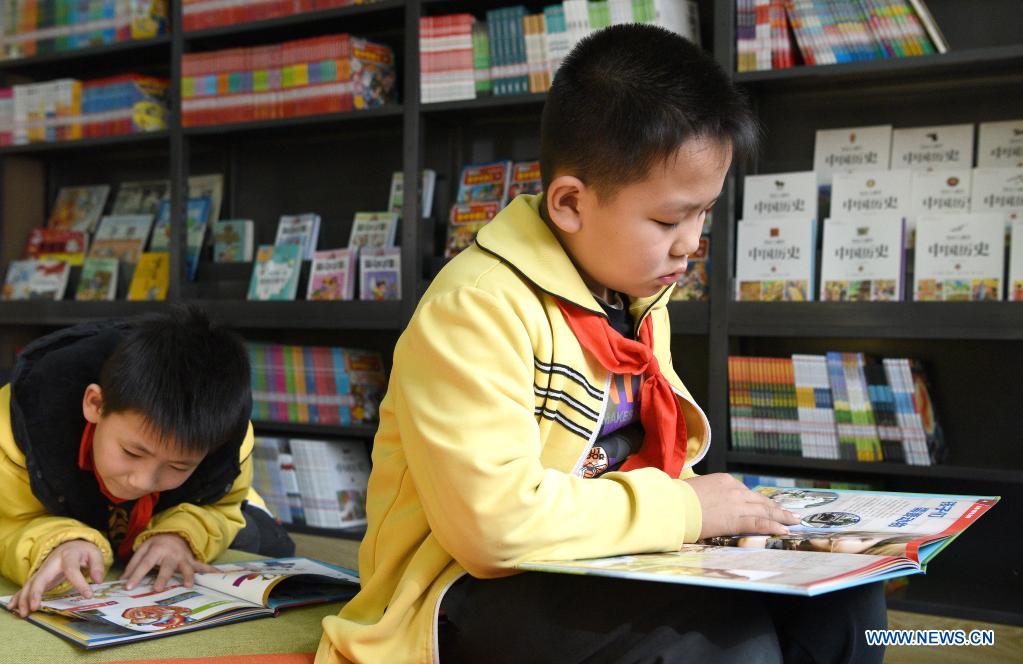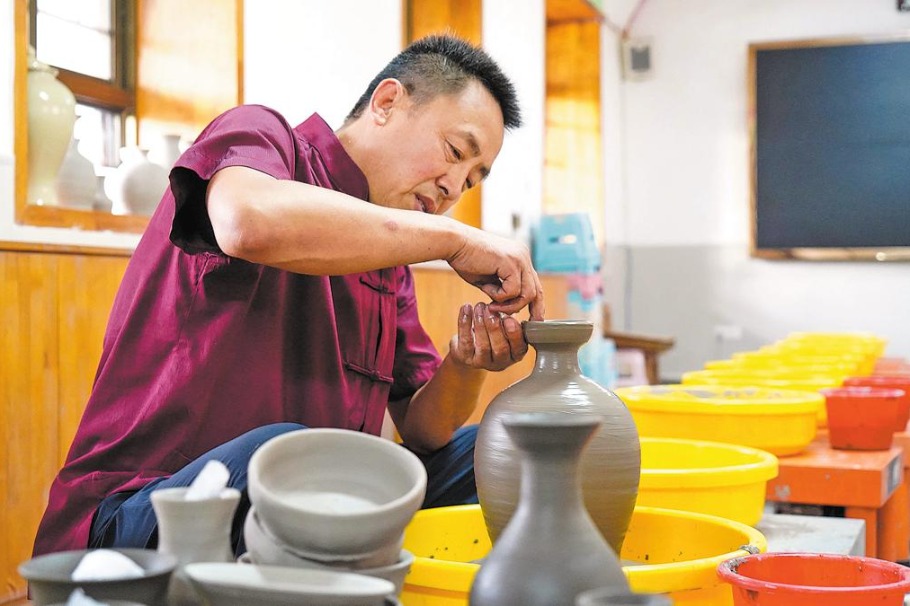Academic burden on students to be reduced


Authorities in China are firmly resolved to implement the recent policy of overhauling the tutoring sector and reducing students' homework pressure, and it is being carried out as a national strategy beneficial to the nation and the people, education officials and experts said.
The guideline, jointly issued by the general offices of the Communist Party of China Central Committee and the State Council, requires all curriculum-based tutoring institutions to register as nonprofit organizations and they cannot raise money from the public.
They are not allowed to conduct training on weekends, national holidays or during winter and summer vacations, and local governments should not approve any new tutoring institutions to conduct academic course training for primary and middle school students.
Known as the "double reduction", the guideline aims to "effectively reduce" the excessive homework and after-school tutoring burden on students within one year, and to achieve "significant outcomes" within three years.
President Xi Jinping emphasized "resolute rectification" of issues attracting widespread public attention in the education sector, along with behavior that harms people's interests in the name of education.
Joining national political advisers from the education, medical and health sectors for a joint group meeting during the Two Sessions in March, Xi stressed the importance of reforming the evaluation system and developing education that people are satisfied with.
Education, whether it is school education or family education, should not focus too much on exam results, he said. Achieving high scores is only a short-term gain. If the students have not developed healthy and mature personalities, they are still not qualified, he added.
During an inspection tour in Xining, Qinghai province, in June, Xi said schools should not push students to enroll in tutoring institutions and schoolteachers should assume primary responsibility for students' education.
Students should not learn less at schools and then focus most of their attention on after-school tutoring classes, he said.
The National People's Congress Standing Committee on Friday appointed Huai Jinpeng as minister of education, replacing Chen Baosheng.
Huai, 58, was previously the Party secretary and executive vice-president of the China Association for Science and Technology.
He is taking on the role at a time when the country has intensified its regulation of the private tutoring sector and improved the quality of school education to reduce the excessive academic burden on students.
Yu Weiyue, director of the newly established department of after-school education and tutoring supervision under the Ministry of Education, said that as an issue concerning people's core interests, the department will resolutely implement the guideline in line with the requirements from the central leadership.
The after-school tutoring industry has seen a large amount of investment since the COVID-19 outbreak last year, leading to chaotic development of the sector and serious disturbance of the education system, he said.
Some tutoring companies have stirred anxiety among parents and students by claiming that they will be "left behind" if they do not enroll in tutoring courses, leading to great academic pressure on students and financial pressure on parents, he said.
This contradicts the public welfare nature of education and harms the normal education ecosystem, Yu said.
"We will firmly stick to the public welfare nature of education, and address any misconduct that goes against it," he added.
The ministry will set up a joint law enforcement mechanism to regulate the tutoring sector by working with other government organs to increase their manpower and capability and hold all violators accountable, Yu said.
Heads of the education departments in 28 provincial-level regions have had signed articles in China Education Daily explaining how they plan to implement the policy.
Liu Yuhui, director of Beijing Municipal Education Commission, said the city has led the nation in carrying out the regulation and established a special working group on "double reduction" in March.
He said the city plans to conduct inspections of tutoring institutions every week and firmly regulate misconduct including false advertising, misleading course fees and training without a permit or license.
Wang Ping, director of the Shanghai Municipal Education Commission, said an "excessive and pointless" academic burden has been detrimental to students' physical and psychological health and obstructs curriculum reform in compulsory education.
The city will fully implement the national policy requirements, take various measures to reduce students' redundant academic burdens and build a sound environment for students' all-around development, Wang said.
Zhong Binglin, a professor at Beijing Normal University, said by reducing the excessive homework and tutoring burden of students, the government aims to reverse the exam-oriented education system and education evaluation standards that place too much emphasis on grades and enrollment in good schools.
Students should have the spare time to develop their interests and hobbies and have personalized development with a comprehensive moral, intellectual, physical and aesthetic grounding, in addition to a hardworking spirit, he said.
More efforts should be made in cultivating students' innovative spirit and capabilities so they can serve national strategies and contribute to the country's socialist modernization, he said.
Gu Mingyuan, a senior education professor at Beijing Normal University, said too much academic pressure has resulted in a lack of sleep, poor physical health and increasing myopia among students.
Moreover, it also puts too much mental stress on students, forcing them to compete fiercely with their peers, and as a result, some have lost interest in learning and lack the ability to deal with defeat, he said.
The government should further promote balanced development between different schools and improve learning institutions with fewer education resources, he added.
- Consumer complaints rise over AI customer service failures
- Zhejiang authorities probe death of child in hospital
- China moves to reduce childcare costs
- High-altitude discovery sheds light on early settlers of Qinghai-Tibet Plateau
- Beijing seminar studies legal systems of Francophone countries
- Approved private vehicles now permitted direct access to Hong Kong





































